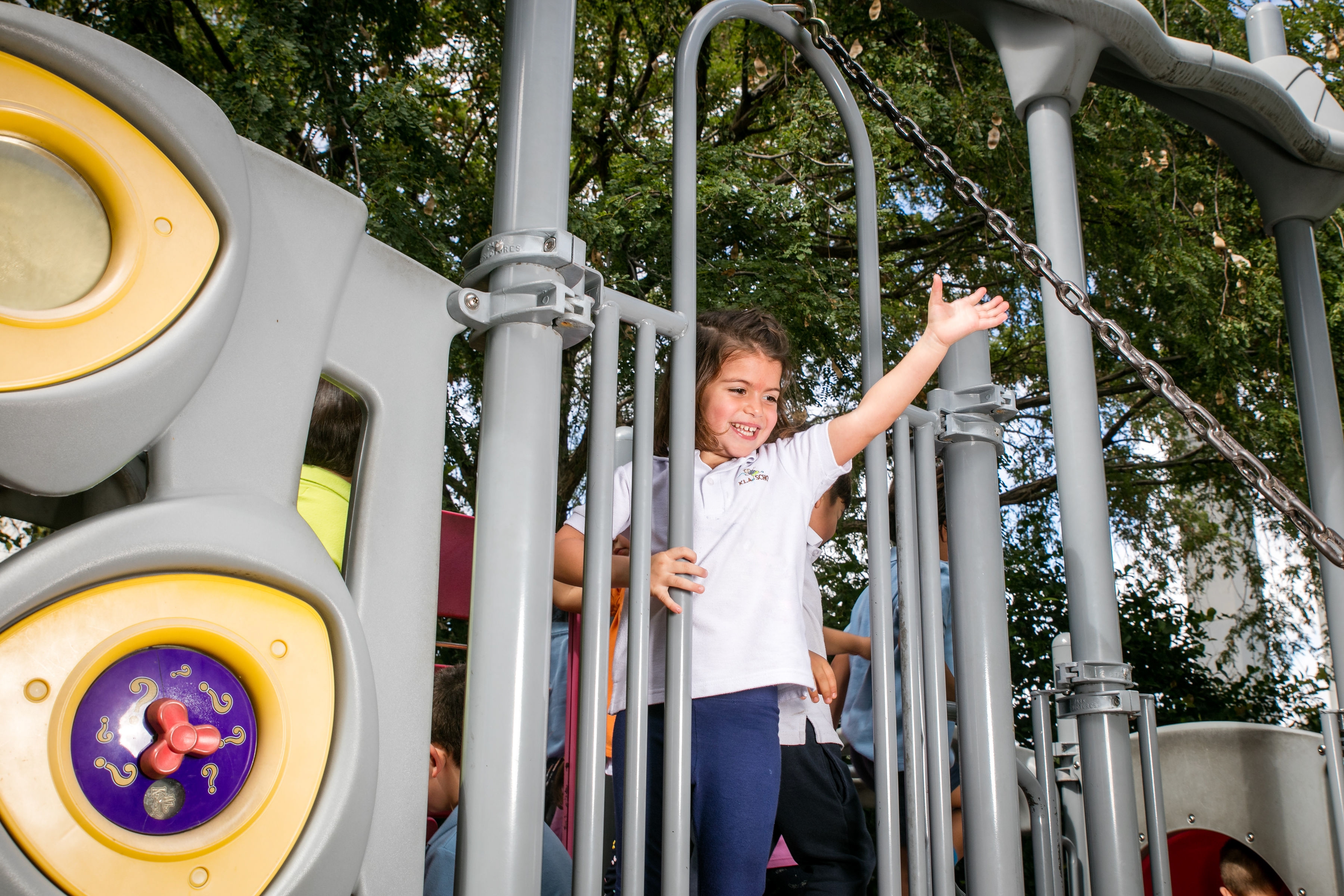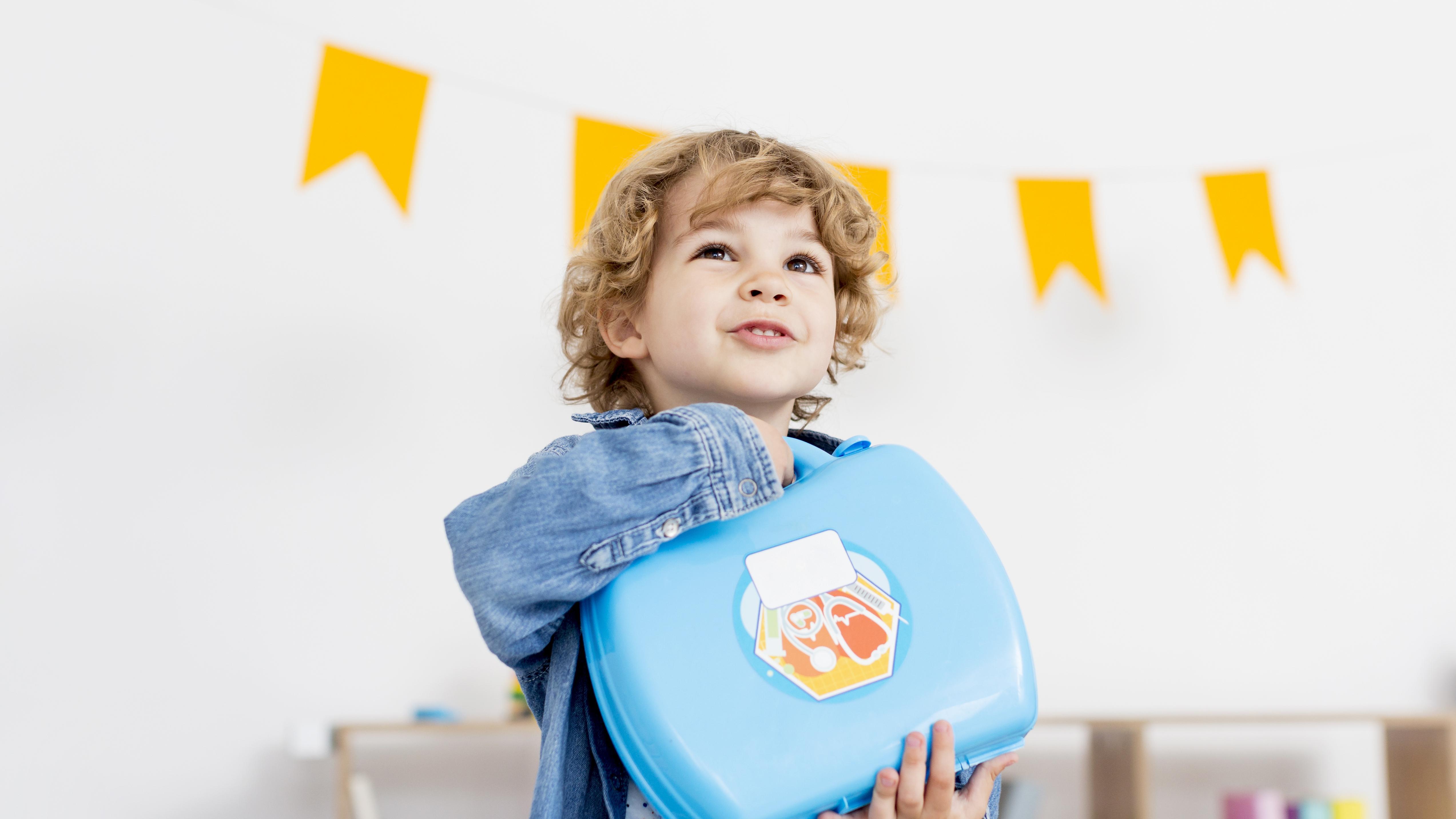What to Expect During Your Child’s First Week of Preschool: A Guide
Topics: School Life
Age Range: Preschool
Starting preschool is a significant milestone for both children and parents. The first week of preschool brings excitement, curiosity, and sometimes anxiety. A new environment, unfamiliar faces, and structured routines can initially feel overwhelming, but the transition can be smooth and positive with preparation and support. Understanding what to expect and how to approach this new chapter helps parents and children confidently navigate the experience.
For many families, the first week of daycare or preschool marks a child’s first step toward independence. It’s a period of adjustment where children learn to separate from their parents, follow a routine, and engage in structured learning activities. While some children eagerly embrace these changes, others may take longer. Preparing for these emotional and behavioral shifts ensures the experience is reassuring rather than stressful.
Parents often wonder what to do the first week of preschool to make the transition easier. Establishing a consistent routine, maintaining open communication with teachers, and offering emotional support are essential. Whether your child is eager or hesitant about starting school, knowing what to expect can help set realistic expectations and ease concerns. This guide provides a detailed overview of what happens during the preschool's first week and how families can support a smooth transition.
Preparing for the First Week
Getting ready for the first week of preschool starts well before the first day. A positive introduction to the school concept dramatically affects how a child approaches this change.
Visit the School Together
Visit the preschool with your child before their start date. Walking through the classroom, meeting teachers, and seeing play areas make the environment feel more familiar.
Establish a Routine
Children thrive on predictability. Setting a consistent bedtime, wake-up schedule, and morning routine before school starts helps them adjust more efficiently during the preschool's first week.
Read Books About Preschool
Reading stories about children starting school normalizes the experience and introduces children to everyday situations they may face, such as making friends, sharing, and following classroom rules.
Talk About Feelings
Some children feel excited, while others feel nervous. Encourage open discussions about emotions and reassure your child that feeling happy and scared is normal.
Practice Independence Skills
Simple tasks like putting on shoes, opening lunch containers, and washing hands independently build confidence and smooth out daily school routines.
The First Day of Preschool
The first day is full of new experiences. Understanding how to navigate this transition helps make it a positive one.
Expect Emotional Reactions
It’s common for children to cry or cling to parents on the first day. This is a natural response to change. Teachers are trained to comfort and help children settle into their new environment.
Keep Goodbyes Short and Positive
A quick, confident goodbye reassures children that school is a safe and happy place. Lingering can increase separation anxiety. A simple, cheerful send-off works best.
Communicate With the Teacher
Sharing information about your child’s likes, dislikes, and comfort items helps teachers offer personalized support, making the first week of daycare or preschool easier.
Send a Comfort Item
A small stuffed animal, family photo, or special blanket provides comfort during moments of uncertainty. Many preschools allow children to bring familiar objects from home.
Adjusting to the New Routine
The transition to preschool takes time. The first few days involve many new experiences, and children may show various emotions as they adjust.
Recognize Signs of Adjustment
Some children may seem excited at first and then experience separation anxiety later in the week. Others may feel unsure for a few days and gradually become more comfortable. Both reactions are normal.
Expect Changes in Behavior
Children often process their emotions through behavior. Some may be tired more than usual, while others act out at home. Providing patience and reassurance helps them adjust.
Encourage Conversations About School
Asking open-ended questions like “What was the best part of your day?” or “Who did you play with?” encourages children to share their experiences.
Stick to a Consistent Routine
A predictable schedule at home helps reinforce the structure of preschool, making transitions more manageable and assisting children to feel more secure.
Supporting Social and Emotional Growth
Preschool is about more than just academics. Learning to navigate social situations, express emotions, and build friendships is just as important.
Encourage Social Interactions
Helping children practice turn-taking, sharing, and introducing themselves builds confidence in making friends.
Reinforce Positive Behaviors
Praising small successes, such as sitting during circle time or listening to the teacher, helps reinforce good habits and boost self-esteem.
Manage Separation Anxiety
If your child struggles with goodbyes, creating a special handshake, hug routine, or goodbye phrase provides comfort and consistency.
What to Expect at the End of the First Week
As the first week of preschool ends, children will start settling into their new routine. Some children adjust quickly, while others may need more time to feel comfortable.
Increased Independence
By the end of the week, many children begin to feel more secure in their environment and show more confidence in classroom activities and routines.
Stronger Bonds With Teachers
Teachers play a crucial role in helping children adjust. Many children develop trust and attachments with their caregivers, making each day more manageable.
More Predictable Emotions
While some initial anxiety may still exist, children generally become more familiar with their surroundings and routines, leading to fewer emotional outbursts.
Growing Excitement About School
Many children begin to look forward to preschool by the end of the week as they build friendships, explore new activities, and gain confidence in their abilities.
Helping Your Child Beyond the First Week
Even after a successful first week, continued support at home helps reinforce positive experiences and ensures a smooth long-term transition.
Keep Communication Open
Talking about school daily keeps children engaged and allows parents to address concerns early.
Encourage Play-Based Learning
Many preschool activities involve play. Encouraging similar activities at home reinforces classroom learning and helps children feel more comfortable with school routines.
Celebrate Progress
Recognizing milestones, no matter how small, builds a child’s confidence and excitement about learning.
Embracing the Preschool Journey
The first week of preschool is an essential adjustment, learning, and growth time. While it may come with challenges, a supportive approach helps children build confidence and embrace the school experience. Each child adjusts at their own pace, and patience, encouragement, and preparation make all the difference. With time, preschool becomes a place of joy, exploration, and meaningful friendships, setting the stage for a lifetime of learning.
KLA Schools and Their Preschool Programs
KLA Schools provide a nurturing, innovative learning environment that supports children’s development from their first week of preschool. Inspired by the Reggio Emilia approach, KLA Schools focus on child-led learning, creativity, and hands-on exploration. Their curriculum encourages critical thinking, collaboration, and social-emotional growth, helping children build confidence and a love for learning.
KLA Schools emphasize structured routines while allowing flexibility for curiosity and discovery. Teachers provide individualized support to ease the transition into preschool, ensuring each child feels secure and engaged. Families looking for guidance on what to do the first week of preschool will find that KLA Schools foster a welcoming environment where children thrive academically, socially, and emotionally.
Enrolling in a program that values experiential learning, strong teacher-student relationships, and parental involvement significantly impacts a child’s early education journey. KLA Schools encourage exploration and meaningful connections, helping children develop the skills and confidence they need for lifelong learning.

